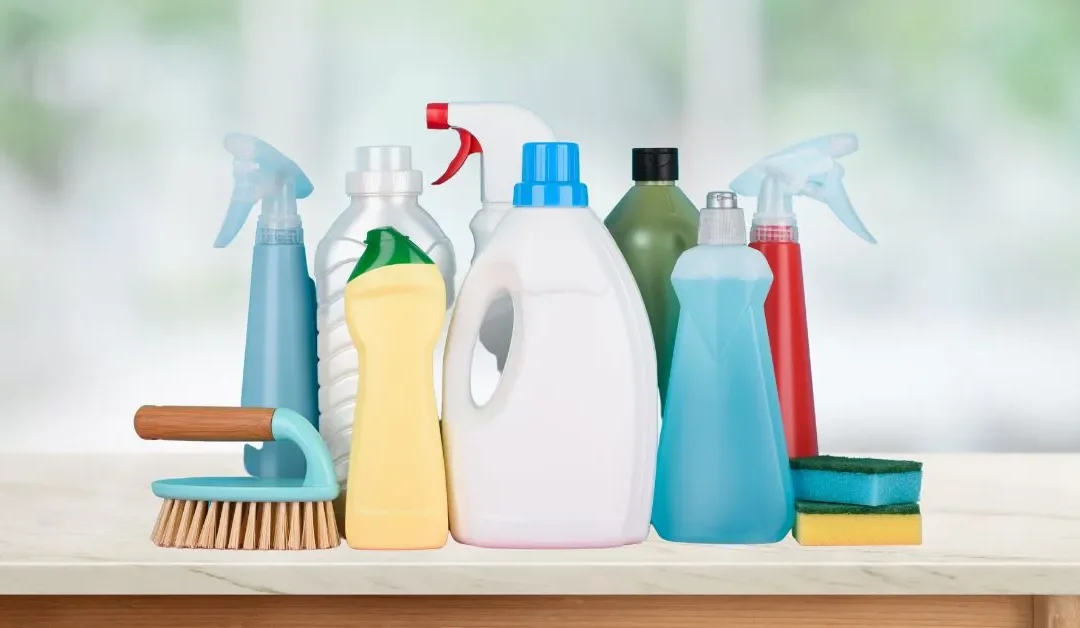Keeping a clean home goes beyond aesthetics—it’s about hygiene, peace of mind, and even health. Whether you’re spring cleaning or tidying up your space daily, using the right products can make all the difference. In this ultimate guide, we’ll explore the top products of cleaning, their categories, how to use them effectively, and how to choose what’s best for your home and lifestyle.
Understanding the Importance of the Right Cleaning Products
Using the wrong cleaning product can damage surfaces or simply not do the job. The right product ensures effective results with less effort. Products are formulated for specific surfaces and grime types—glass, grease, wood, fabric, or germs—and choosing correctly not only protects your belongings but enhances cleanliness.
All-Purpose Cleaners: Your Everyday Go-To
All-purpose cleaners are the workhorses of any cleaning routine. They’re ideal for quick wipe-downs in kitchens, bathrooms, and other surfaces. Available in sprays, liquids, or wipes, these cleaners remove dirt, grime, and some bacteria.
Top Brands to Consider
- Mr. Clean Multi-Surface Cleaner
- Lysol All-Purpose Spray
- Seventh Generation Free & Clear
Tip: Choose non-toxic, biodegradable formulas if you have pets or children.
Disinfectants and Sanitizers: Killing Germs Effectively
While all-purpose cleaners remove dirt, disinfectants and sanitizers kill bacteria and viruses—crucial for high-touch areas like doorknobs, bathroom fixtures, and kitchen countertops.
Popular Products
- Clorox Disinfecting Wipes
- Lysol Disinfectant Spray
- EPA-approved hydrogen peroxide sprays
Note: Always allow the product to sit for the recommended time to ensure efficacy.
Glass and Window Cleaners for Streak-Free Shine
Standard cleaners often leave streaks on mirrors and glass. Specialized glass cleaners offer a crystal-clear finish with minimal effort.
Trusted Options
- Windex Original Glass Cleaner
- Sprayway Glass Cleaner
- Homemade vinegar and water solution
DIY Tip: Use newspaper instead of paper towels for a streak-free shine.
Floor Cleaners: From Hardwood to Tile
Floors accumulate everything—dust, dirt, allergens, and spills. The right floor cleaner depends on your flooring material:
- Hardwood: Bona Hardwood Floor Cleaner
- Tile and Stone: ZEP Neutral pH Floor Cleaner
- Vinyl or Laminate: Black Diamond Wood & Laminate Floor Cleaner
Pro Tip: Avoid too much water on hardwood—it can warp over time.
Kitchen Cleaners for Grease and Grime
Grease is stubborn, especially in the kitchen. Products tailored for kitchen cleaning dissolve grease without damaging surfaces.
Top Picks
- Dawn Powerwash Spray
- Easy-Off Oven Cleaner
- Method Heavy Duty Degreaser
Pro Tip: Regular maintenance helps avoid heavy buildup and the need for harsher chemicals.
Bathroom Cleaners: Tackling Mold, Mildew, and Limescale
Bathrooms require products that can handle moisture, soap scum, and bacteria. Use targeted products for tubs, toilets, and sinks.
Best in Class
- Scrubbing Bubbles Bathroom Grime Fighter
- Kaboom Foam-Tastic with OxiClean
- Lysol Toilet Bowl Cleaner
Tip: Use a squeegee on shower walls after each use to reduce soap scum.
Specialty Cleaners for Fabrics and Upholstery
Upholstery and fabrics need gentle but effective cleaning. From carpet sprays to fabric refreshers, these products help maintain freshness and appearance.
Popular Choices
- Resolve Carpet Cleaner
- Woolite Instaclean Pet Stain Remover
- Febreze Fabric Refresher
DIY Option: Baking soda can help eliminate odors before vacuuming.
Eco-Friendly and Natural Cleaning Products
Eco-conscious households are turning to green cleaning products—effective without harmful chemicals.
Top Eco Brands
- Mrs. Meyer’s Clean Day
- Ecover
- Method
- DIY solutions: vinegar, baking soda, lemon juice
Why Go Green? They’re safer for pets, children, and the environment.
Cleaning Tools That Complement the Products
The right tools make a big difference. No matter how good a product is, it’s only as effective as the applicator.
Must-Have Tools
- Microfiber cloths: capture dust and bacteria
- Scrub brushes: for tough grime
- Sponges: for versatile use
- Mop and bucket systems
- Steam cleaners: chemical-free deep cleaning
Maintenance Tip: Clean your cleaning tools regularly to avoid spreading germs.
Conclusion
Achieving a spotless home isn’t about cleaning harder—it’s about cleaning smarter. Investing in the right products of cleaning saves time, energy, and keeps your living environment hygienic and welcoming. Whether you’re looking for heavy-duty solutions or eco-friendly alternatives, there’s a product out there that suits your needs. Build your arsenal based on your home’s surfaces, your lifestyle, and your cleaning preferences—and enjoy a consistently clean, fresh space.
FAQs
1. What’s the difference between disinfecting and cleaning?
Cleaning removes dirt and grime, while disinfecting kills germs and bacteria. For high-touch areas, both are important—clean first, then disinfect.
2. Can I make effective cleaning products at home?
Yes! Vinegar, baking soda, and lemon are great natural ingredients for DIY cleaners, but they may not disinfect as thoroughly as commercial options.
3. Are eco-friendly cleaners as effective as chemical ones?
In many cases, yes—especially for everyday cleaning. However, for killing viruses or mold, check if the product is EPA-approved or proven effective.
4. How often should I clean different parts of the home?
- Kitchen counters: daily
- Toilets and sinks: weekly
- Floors: weekly to bi-weekly
- Windows: monthly
- Upholstery: every 3–6 months
5. What cleaning products should I avoid mixing?
Never mix bleach with ammonia or vinegar. These combinations create dangerous fumes. Always follow label instructions carefully.
Also read: Café Rouge Westbourne Bournemouth: French-Inspired Dining in Coastal Elegance.

